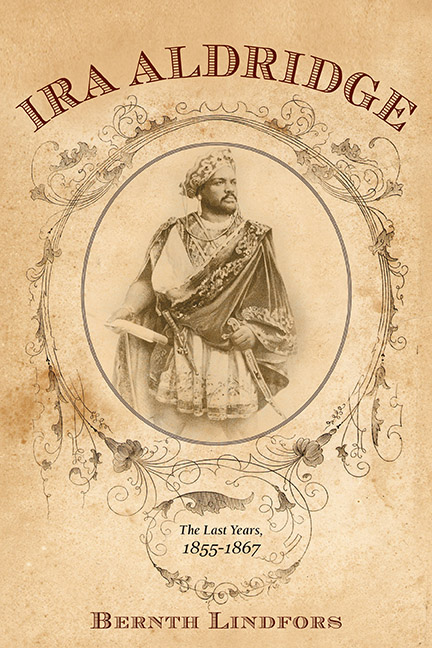Book contents
- Frontmatter
- Contents
- List of Illustrations
- Acknowledgments
- Abbreviations
- Introduction
- 1 Readjusting to Britain
- 2 Crim. Con.
- 3 On the Road Again
- 4 Stockholm
- 5 The Second Continental Tour
- 6 Pest and Buda
- 7 A Short Break
- 8 The Third Continental Tour
- 9 Home Again
- 10 The Fourth Continental Tour
- 11 The Fifth Continental Tour
- 12 The Sixth Continental Tour
- 13 Taking a Break
- 14 The Seventh Continental Tour
- 15 Another Break
- 16 The Eighth Continental Tour
- 17 The Ninth Continental Tour
- 18 Final Acts
- 19 Postmortem
- Notes
- Selected Bibliography
- Index
- Frontmatter
- Contents
- List of Illustrations
- Acknowledgments
- Abbreviations
- Introduction
- 1 Readjusting to Britain
- 2 Crim. Con.
- 3 On the Road Again
- 4 Stockholm
- 5 The Second Continental Tour
- 6 Pest and Buda
- 7 A Short Break
- 8 The Third Continental Tour
- 9 Home Again
- 10 The Fourth Continental Tour
- 11 The Fifth Continental Tour
- 12 The Sixth Continental Tour
- 13 Taking a Break
- 14 The Seventh Continental Tour
- 15 Another Break
- 16 The Eighth Continental Tour
- 17 The Ninth Continental Tour
- 18 Final Acts
- 19 Postmortem
- Notes
- Selected Bibliography
- Index
Summary
Aldridge's second Continental tour was turning out to be the same kind of triumph his first Continental tour had been. Welcomed everywhere, he won full-throated praise and enthusiastic applause for his three principal roles. The comments were much the same as those voiced in 1853–55, when he began working exclusively with local troupes who performed in their own language while he continued to speak his lines in English. As Othello he was admired for the energy, passion, dignity, and deep understanding he brought to his interpretation of a noble but impulsive man who loved not wisely but too well. As before, the extreme emotion he displayed in jealous outbursts of pain, rage, and despair was “highly disconcerting” to some audiences but was thought to be justified by his “tropical temperament,”—that is, by the fact that he was an African playing an African. Such eruptions “are taken to the outer bounds of what is permissible—piercing, terrifying, and usually incredibly effective.” Yet a critic in Krakow, who had seen him perform the same role five years before, felt that there was now “a greater temperance in the outbursts of passion, an attempt to accommodate our views, our timid bourgeois sentiments, our civilized feelings.” He was the same Aldridge, giving the same stirring performance, but doing so now in a manner that cultured Europeans would find more tolerable.
There were suggestions that his interpretation of Shylock had changed too. He was still “every inch the Jew with his burning hatred of Christians and his insatiable thirst for revenge,” a Jew whose “harsh traits of character break through with a certain confident haughtiness,” yet who reminds us of his tribe's pathetic heritage of suffering. Aldridge deviated from Continental convention by making Shylock, despite his flaws, a sympathetic figure. A few critics pointed to a new feature of his performance: a tendency “to repeat the German words of his dialogue partner in German,” and to slip in “German phrases that naturally weren't learned well.” This was something he had not done before, and it had an estranging effect.
- Type
- Chapter
- Information
- Ira AldridgeThe Last Years, 1855-1867, pp. 81 - 89Publisher: Boydell & BrewerPrint publication year: 2015

